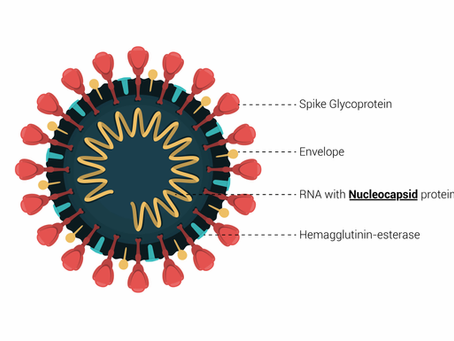Lately there have been frequent reports of mutations in SARS-CoV-2, the cause of COVID-19. In particular, variant B1.1.7 from England and variant B.1.351 from South Africa show a potentially increased infectivity. This raises the question of what effect such mutations have on the reliability of rapid tests and whether an infection with the English variant can also be detected.
Both variants are characterized in particular by mutations in the spike protein. The spike protein is a glycoprotein which is located on the surface of the virus particle [1]. It helps the virus to penetrate the cells, but at the same time makes it recognizable for the immune system. This protein is also the target of most vaccines, such as from Moderna or Biontech [2].
It is therefore important to use a rapid antigen test that is not based on the spike protein. As with the Testsealabs rapid antigen test, the nucleocapsid protein is often used here. This protein lies inside the virus and is bound to its RNA.
This nucleocapsid protein is not changed by the mutation in the spike protein. According to the current state of science, this variant can also be detected using rapid tests such as the COVID-19 antigen rapid test. However, only general proof of the infection is possible and no statement as to whether a specific virus mutation is present. The detection of certain mutations is therefore much more complicated and depends on laboratory-based methods such as PCR tests or sequencing.
Learn more:
[1] Robert Koch Institute: SARS-CoV-2: Basic virological data and virus variants
[2] Robert Koch Institute: FAQ COVID-19 vaccination

